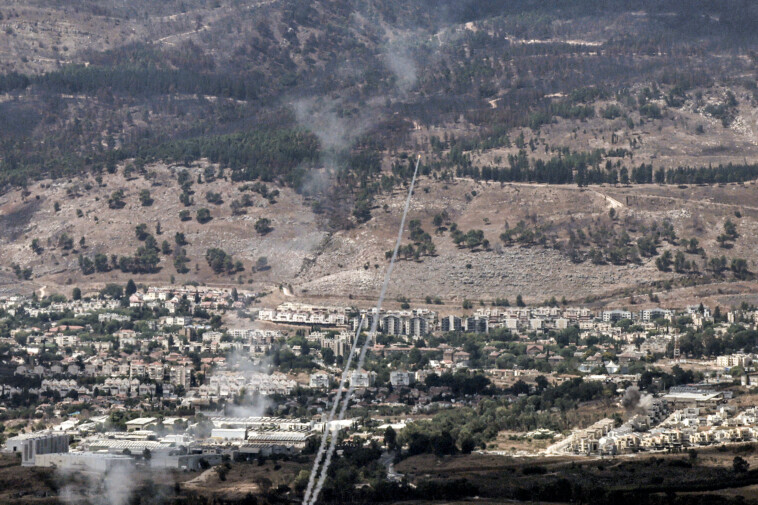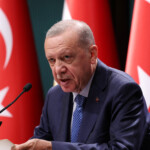As a barrage of more than 30 rockets blasted from Lebanon rained down on northern Israel Saturday, the heads of the CIA and the UK’s MI6 jointly called for a hostage and ceasefire deal in the ongoing war with Hamas.
“Our services are working ceaselessly to achieve a ceasefire and hostage deal in Gaza, which could end the suffering and appalling loss of life of Palestinian civilians and bring home the hostages after 11 months of hellish confinement by Hamas,” Bill Burns, director of the CIA, and Richard Moore, chief of the UK Secret Intelligence Service, also known as MI6, wrote in a column for the Financial Times.
Burns and Moore emphasized the partnership between the allied countries amid an “array of threats” including from Russia, China and in the Middle East — the worst since the Cold War.
“We continue to work together to deescalate tensions in the region,” they wrote.
Later on Saturday, the two made an unprecedented joint appearance at a Financial Times event and further discussed the international world order.
A more detailed ceasefire deal in the Israel-Hamas war could be reached in the next several days, Burns said, as the US works with mediators in Egypt and Qatar to refine a framework proposed by President Biden in May. Burns added that its success would be a question of “political will.”
The column was published hours before hundreds of thousands of Israelis again took part in protests in Tel Aviv and Jerusalem calling for a deal to bring the hostages home. A massive demonstration also took place Saturday in London calling for a ceasefire.
The protests took place shortly aftter new poll found that a majority of Israelis want a hostage deal to take precedence over IDF troops remaining in the strip between Gaza and Egypt, which Israeli Prime Minister Benjamin Netanyahu has reportedly been insistent on.
Sixty-one percent of respondents said they don’t believe the government is doing all it can to bring the hostages home, according to the poll from Israel’s Channel 12 News.
Earlier on Saturday, the Israeli army reported that 30 rockets fired from Lebanon fell in the north near Galilee and that its troops intercepted at least two others, but that there were no injuries.
The Iran proxy Hezbollah, which joined forces with Hamas shortly after the Oct. 7 terrorist attacks on Israel, confirmed it shot the rockets, according to reports.
In response, the IDF said it attacked a Hezbollah rocket-launch platform in southern Lebanon.
More rockets were fired at Israel from Lebanon in August than in any previous month since war began, according to data published by the Shin Bet security agency, the Times of Israel reported.
MI 6’s Moore also said that he believes Iran is still planning to retaliate against Israel for the killing of Hamas leader Ismail Haniyeh in Tehran on July 30.
Palestinian authorities announced Saturday that at least eight people were killed and 15 were wounded in an Israeli strike on a school building, which the IDF said was targeting a Hamas command center inside the compound.
The IDF did announce that it would be changing its combat tactics in the tunnels of Gaza to prevent the murder of more hostages being held there by Hamas, according to reports.
An initial investigation indicated that IDF soldiers were spotted outside Hamas tunnels on Sept. 1, likely prompting Hamas to shoot dead Hersh Goldberg-Polin, Eden Yerushalmi, Carmel Gat, Almog Sarusi, Alexander Lobanov, and Ori Danino.
Rescued Muslim Israeli hostage Qaid Farhan Alkadi told the Jerusalem Post that Hamas shot and assaulted him for not revealing the location of Jewish people when they invaded his kibbutz on Oct. 7.
“I said to myself that, if as a Muslim I receive such treatment, what about the Jews?” said Alkadi, who was rescued at the end of August. “What kind of treatment do they receive?”
With Post wires






